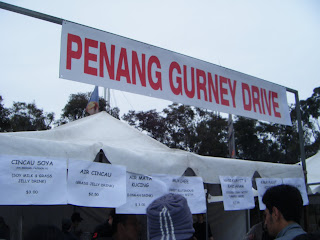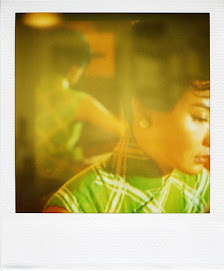Like previous opening ceremonies, Beijing's will lean heavily on its national culture and iconography. The leaked footage shows that the ceremony will showcase Chinese acrobatics, dance and martial arts. The opening is being choreographed by Chinese director
Zhang Yimou, best known outside of China for martial arts films such as Hero and House of Flying Daggers.
Chinese authorities have been scrambling to get the video pulled off video sites, particularly on the mainland. Fortunately, the security leak didn't reveal the biggest secret, how the torch will arrive to the stadium and how the Olympic cauldron will be lit.
According to
the Canberra Times, workers and volunteers on the ceremony were forced to sign confidentiality agreements and could have been punished with up to seven years in prison for breaking the contract. It is not known whether Korean broadcaster SBS will face actions from Olympic organizers for capturing the footage.
There will be a few quirks in Beijing's ceremony. At previous ceremonies national teams march in by alphabetical order, with the home team arriving last, at this Games, teams will march in determined by the number of strokes in the nation's Chinese name. The Chinese delegation will still arrive, to the 3 1/2 hour long ceremony, last.
The ceremony is scheduled to start on August, 8, 2008 at 8:08 p.m. Beijing Time. The number eight is considered auspicious in Chinese culture.
Tan Dun: Harmonizing music with athletics for the Olympics
By Sheila Melvin
Wednesday, August 6, 2008
BEIJING: With the 2008 Beijing Olympics about to begin, the Chinese capital is awash in a dizzying array of culture festivals, gallery openings, concerts, museum exhibitions, lectures, dialogues, forums and informal talks.
"Everybody is trying to provide a platform for political exchange, cultural exchange," said the composer Tan Dun, who is himself participating in a "Forum of Champions" with Tony Blair and Henry Kissinger. "But we also need a philosophical platform. So recently in all my music I'm interested in trying to find not just the phenomenon of harmonics, like water meets fire, but an internal basic Chinese philosophy."
The Chinese philosophy that interests Tan most is Zen, which originated in China around the seventh century and is known here as Chan.
"Among all Chinese philosophy, Zen is the most predesigned by the gods for the future," Tan said. "Zen can be the philosophical guide for all people to share in the 21st century. I want to pass this Zen experience on."
The Olympics and the ongoing "Meet in Beijing" Olympics culture festival have presented Tan with two major opportunities to do just this.
Although the Paris-based composer Chen Qigang is the music director for the Olympics' opening ceremony on Friday, Tan composed the logo music that will resound at the start of each event - 18,000 times, according to him - and the award music that will be played when each of the 6,000 Olympic medals is presented to winning athletes.
Composing for a major athletic event presents challenges that commissions for concert halls and opera houses do not.
"Sports music has a specific way to handle speed, key changes, mode; it is very intense," Tan said. "We had to analyze normal people's walking speed and sportsmen's walking speed and average it - we had to find a middle way for the tempo to have the most comfortable pacing for everyone."
But Tan - an avid swimmer and self-professed sports fan - found the process to be enjoyable, even Zen-like. "In the beginning you are a sports lover and a music lover - then you put them together," he said. "Now I find that it is quite interesting to see both as one - it's big fun!"
In his search for a philosophical base for his Olympic music, he was determined to find something that would both preserve the Olympic spirit and "be a key which lets people open the door to China."
"I was struggling to find a format, an inspiration," Tan continued. "Then one day I was in Beijing and the winner of the Olympic gold medal design was announced - it was gold and jade together. So I started researching this in the Chinese encyclopedia."
Tan soon came upon the term "jinshengyuzhen" - gold sound and jade vibrations - and discovered that it was both a musical and religious term that is carved in temples across China.
"It is the very high stage of Taoism - it expresses the highest state of harmony. So I decided I wanted to use gold and jade materials to make my music."
Tan chose a giant bianzhong - an ancient instrument consisting of bronze bells hung on a wooden frame - to represent the gold. For the jade, he consulted with specialists at the Hubei Museum (which is home to China's most important bianzhong, dating to 433 B.C.) and bought five tons of gray-green jade with which to create "a stone orchestra" that he designed himself. The nine sets of jade instruments, which cover the same scale as a piano, were carved by 55 workers over a six-month period and then trucked to Beijing for the recording session.
"So now the 'gold' and jade ensemble serves as the basic ceremonial colors mixed with the China Philharmonic symphony and chorus," Tan said. "We took very, very ancient culture and very, very modern culture and they will meet at the Olympics."
This same sort of philosophical convergence occurs in Tan's opera "Tea," which was staged last week at the National Center for the Performing Arts. Since its 2002 premiere in Japan, "Tea" has been performed in New Zealand, France, the United States and the Netherlands, but this was its China premiere - and, in fact, the first time one of the composer's four operas has been staged in his homeland.
"I'm so glad it was 'Tea,"' the composer said of his operatic premiere in China. "I think it's a wonderful choice because of its philosophical base - water and fire - and its East and West musical culture." He added that it also had "the Zen idea, which tells you to share and to understand things from a different angle, without requiring you to unite."
"Tea" takes its inspiration from "The Classic of Tea," the Tang Dynasty classic by Lu Yu (733-804). An orphan who was raised by a Zen monk, Lu Yu rebelled against monasticism as a teenager and ran off to become a circus clown. His antics caught the attention of an official who provided for his education, and Lu Yu then spent five years researching and writing a monograph that chronicles tea cultivation and consumption in near-obsessive detail.
"Tea," which was performed by the China National Opera House and conducted by Tan himself, is permeated by the rituals that surround tea consumption. It tells the tale of a Japanese Zen monk (the baritone Sun Li) who chose the tonsure after an ill-fated love affair with a beautiful Chinese princess (the soprano Wang Wei) who shared his passion for tea.
The opera begins and ends with the mesmerizing sound - and sight - of gowned percussionists scooping water from illuminated glass bowls and dripping it back in through their hands. It also includes on-stage percussive performances on hanging paper screens and glazed ceramic pots. The orchestra performs on traditional Western instruments mixed with Chinese and occasionally supplemented by kazoo-like mouthpieces and the flapping of the paper music, a sound evocative of doves taking flight.
Despite a very tight schedule, the director Jiang Qing's production transported the audience smoothly through the blue-gray ether of the Zen monastery, the shimmering rituals of the imperial court, and the doomed passion of the romance in which tea serves as a metaphor for life, love and death.
I may be adding more interesting posts on China or Beijing during the duration of the Summer Olympics in Beijing....enjoy the read....


 Above: Iban National Costume, one of the ethnic costumes of Malaysia...
Above: Iban National Costume, one of the ethnic costumes of Malaysia... Above: I love the new Malaysian Airline tagline...: "More than just an airline code;MH is Malaysian Hospitality"...cool heh??
Above: I love the new Malaysian Airline tagline...: "More than just an airline code;MH is Malaysian Hospitality"...cool heh?? Above: Bringing a little bit of Penang hawker fare to Sydney .....
Above: Bringing a little bit of Penang hawker fare to Sydney .....
 More Pix on my Online Photo Album at the Right Hand Side...
More Pix on my Online Photo Album at the Right Hand Side...








 I thought of a title for this blog post, which is.........
I thought of a title for this blog post, which is.........


